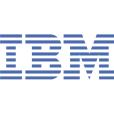 The University of Kentucky has acquired a new IBM (NYSE: IBM) supercomputer that places the university's research capability among the nation's leaders for public and private university research computing.
The University of Kentucky has acquired a new IBM (NYSE: IBM) supercomputer that places the university's research capability among the nation's leaders for public and private university research computing.The state-of-the-art IBM System Cluster 1350 offers a theoretical peak performance of 16 teraflops of calculation capacity, offering both greater speed and broader access for scientific research in a broad range of academic disciplines. This means the new machine can handle up to 16.3 trillion calculations per second.
"UK has been a national leader in the use of supercomputing for scientific research for at least two decades, and this new machine will permit the university to maintain its leadership," UK President Lee T. Todd Jr. said.
John Connolly, director of the UK Center for Computational Science, said that based on rankings released in November 2006, the new supercomputer would place UK among the top echelon of American universities with research supercomputers. The UK supercomputer also would rank among the world's military, governmental, industrial and academic supercomputers, based on the semi-annual listing prepared by the University of Tennessee and Mannheim University, Germany. The rankings will be updated in June 2007, and many of the agencies it includes may have upgraded their supercomputing capabilities when that listing is issued.
"Since 1987, UK has made clear its commitment to providing its researchers with the tools they need to expand the boundaries of knowledge. This new supercomputer signals the university's continuing commitment," Connolly said. "The speed and flexibility of the IBM Cluster made it a logical choice for our center. It will provide us with the capacity we need to springboard our research."
"IBM is actively engaged with universities throughout the world, working to put the latest technology into the hands of leading researchers, and we are pleased to collaborate with UK on its new supercomputing cluster," said Wendy McGee, director, IBM Cluster Solutions. "UK was looking for a supercomputer that would provide its Center a leap in performance, while still meeting its space and budget requirements. And with its small footprint, leading-edge systems and networking, along with integrated power management tools, the Cluster 1350 does just that."
The new supercomputer, which was unveiled today, replaces an HP supercomputer that had been able to handle 1 trillion calculations per second. The older supercomputer was acquired by UK in 2002, and at that time was considered state-of-the-art.
Research areas that will benefit from the new supercomputer include biochemistry, pharmacy, medicine, mechanical engineering, physics and astronomy, and others.
As part of a network of research supercomputers, UK will also permit researchers from other universities across the country and around the world to use the new supercomputer in their work.
UK acquired the new machine under a two-year lease totaling $2.6 million.
The IBM Cluster 1350 uses eight IBM Power5+ p575 servers along with IBM BladeCenter®, utilizing 340 IBM HS21 compute blades based on 3-gigahertz Intel dual-core processors, for a total of 1,488 compute cores. The cluster also features a System Storage™ DS4800 with 30 terabytes of storage and a 4X Infiniband Network from Voltaire. High performance computing clusters can range from as few as two to thousands of servers woven together to deliver high-speed performance demanded by a broad range of applications. IBM hardware offerings in this space include System x, System p™ and BladeCenter servers and IBM System Storage, as well as the IBM System Cluster 1350, an integrated, factory built and tested cluster with networking from leading vendors.
For more information about IBM, go to: www.ibm.com
In striving to become a Top 20 public research institution, the University of Kentucky is a catalyst for a new Commonwealth -- a Kentucky that is healthier, better educated, and positioned to compete in a global and changing economy. For more information about UK's efforts to become a Top 20 university, please go to http://www.uky.edu/OPBPA/Top20.html
No comments:
Post a Comment